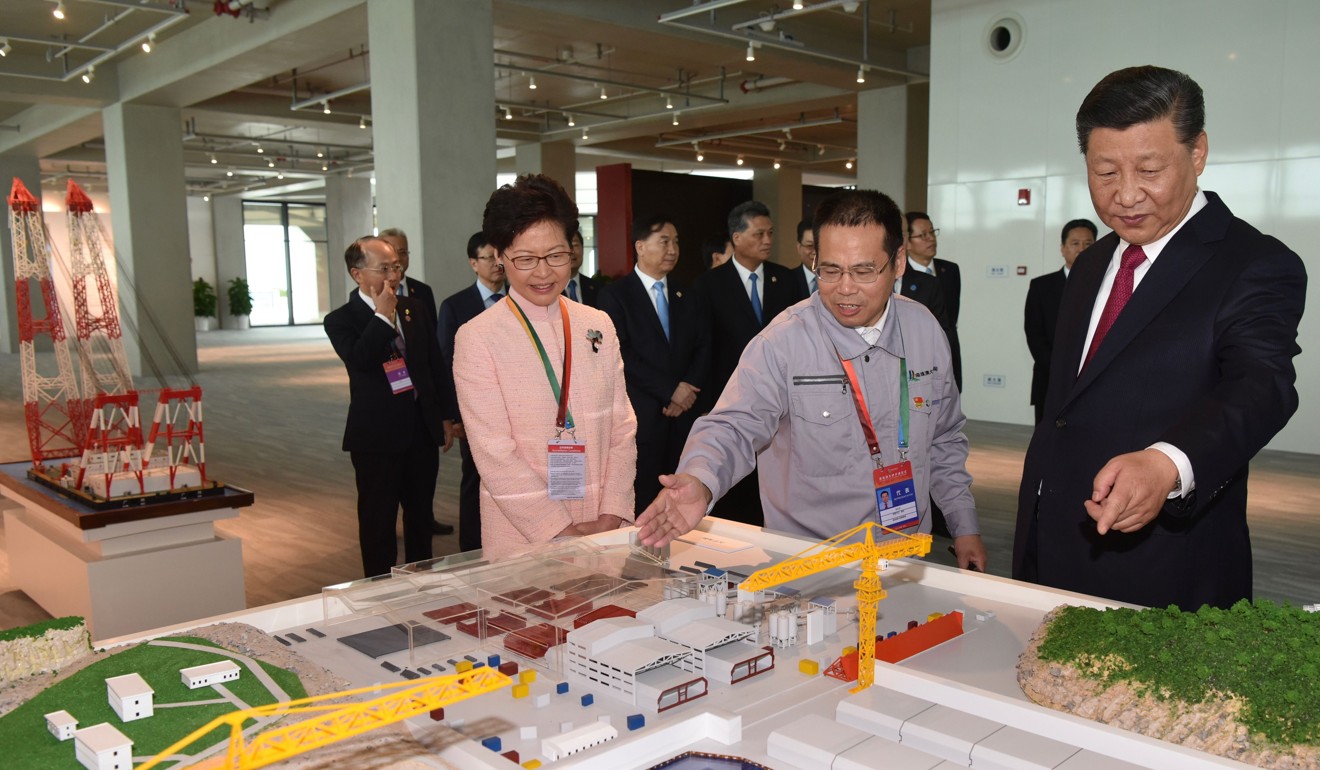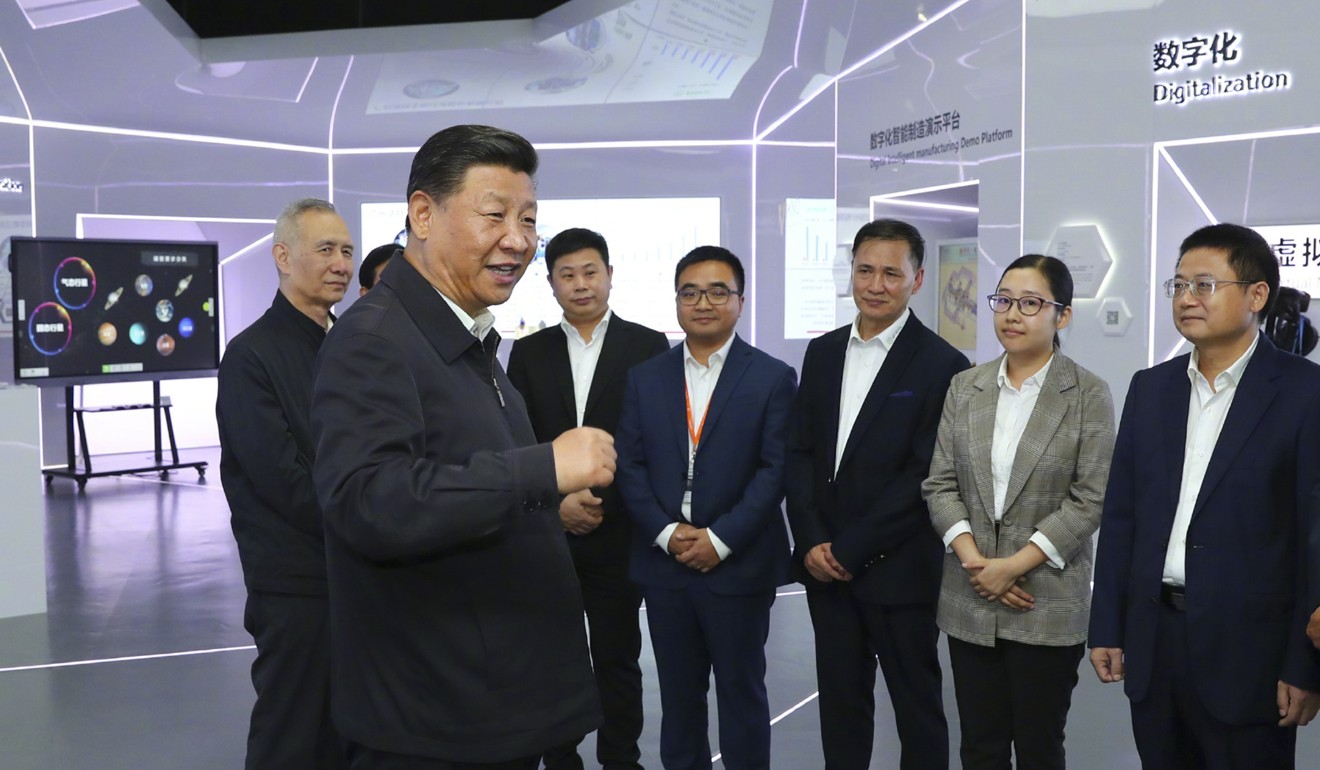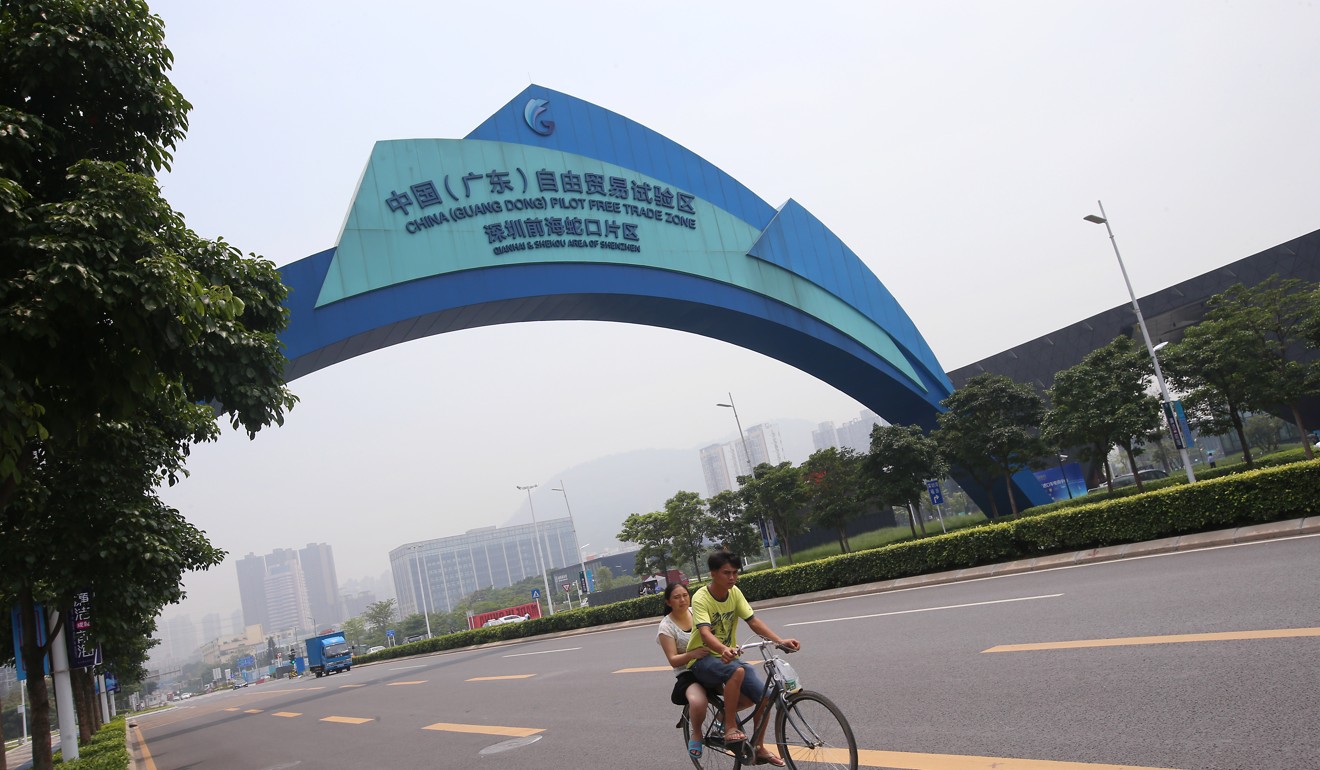
Hong Kong stands to experience sweetness or pain in Xi’s vows for further reform, including a Qianhai Model
- The Chinese president on his trip south called for more ‘replicable experiments’ as Hong Kong goes from being an ‘outside’ model to a full participant in China’s reform
Chinese leaders like to quote classic proverbs and learned sages in their speeches and remarks to sharpen their messages. President Xi Jinping is no exception.
So, it’s quite telling that official media, on the last day of his southern China tour last week, released a carefully selected audio clip of the president’s remarks.
While vowing to further open up the country, and assuring support for the private sector, Xi highlighted his inspection tour of the Qianhai free-trade zone in Shenzhen, an area being developed from scratch into a new financial centre in the Greater Bay Area.

It was significant that Charles Li Xiaojia, chief executive of the Hong Kong stock exchange was among those accompanying Xi.
The dominant theme of the president’s remarks was that there is no alternative for China but to continue and deepen reform. But how?
Many at home and abroad compared Xi’s tour with paramount leader Deng Xiaoping’s in 1992.
China’s reform and opening up can keep delivering ‘miracles’, says Xi Jinping
Amid all the doubts and concerns about the United States taking on China as a rival or even enemy under Donald Trump’s presidency, Xi knew too well his message must be heard loud and clear, and in the right context.
“The tour indeed carries a message,” Xi acknowledged. “Forty years of reform has made China ‘rise from the ashes’. Now that we are getting better and better, why wouldn’t we go on this chosen road?”
Xi’s reference to phoenix-like rebirth and regeneration reflected his thinking that while the economic outlook might seem grim, there is new life out there to be embraced through strong will and perseverance.

How bad China’s economy is, or will be amid all the uncertainty stemming from the ongoing trade war, depends on who is talking, but there is no lack of confidence.
In that regard, it is similar to what Deng faced in the early 1990s when the whole country, especially the top Communist Party leadership, was caught up in a big debate on whether China was heading towards “capitalism” or still on the course of “socialism” under Deng’s reform. The paramount leader had to clarify that reform was not the sole preserve of capitalism.
A significant moment during Deng’s southern tour was when he stood at the border overlooking Hong Kong and decided: “We need more Hong Kongs.”

China was then isolated by the West over the 1989 Tiananmen crackdown on the student-led democratic movement. What about today?
When Xi announced the opening of the mega bridge that links Hong Kong with Macau, Zhuhai and the whole Greater Bay Area, further integrating Hong Kong with the mainland, another key message was his appreciation of the “Qianhai model” and his call for more “replicable” experiments. That explains why Charles Li was among the group with Xi, suggesting Hong Kong has a role in this hopefully “replicable” experiment.
No free rides for cities in Greater Bay Area, President Xi Jinping tells Hong Kong entrepreneurs during Shenzhen trip
There was some disappointment that Xi did not announce more concrete measures while touring Guangdong. But before his meeting with Trump in late November, Xi will chair the much-anticipated fourth plenum of the 19th Party Congress, which is expected to focus on the latest challenges as China-US relations deteriorate. These challenges include tackling yuan fluctuation risks, financial and investment reform, as well as balancing conflicts between state-owned enterprises and private businesses, especially SMEs.
Whether China has indeed entered a phoenix-like state before a rebirth is open to different interpretations. Hong Kong’s role, for its part, has transformed from that of an “outside” model during Deng’s time to a participant in China’s reform.
For better or worse, Hong Kong will either taste the sweetness or feel the pain.

